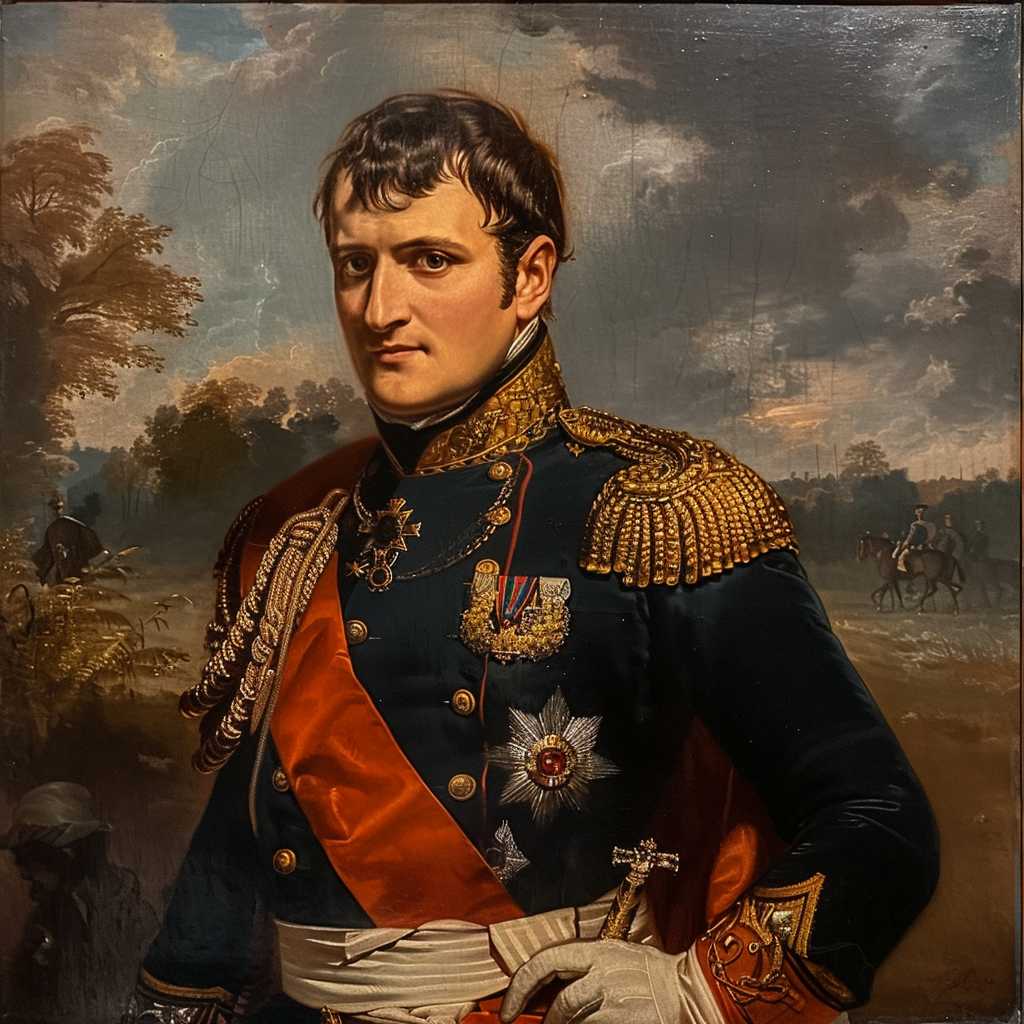Napoleon Bonaparte: The Imperious Leader of France and Architect of Modern Europe
Napoleon Bonaparte, whose name is almost synonymous with the European history of the early 19th century, was a military general who became the first Emperor of France. His legal reforms, the Napoleonic Code, have influenced legal systems around the world. This article dives into his early life, rise to power, military campaigns, governance, downfall, and lasting legacy.
Early Life and Military Beginnings of Napoleon Bonaparte
Born on August 15, 1769, in Corsica, just months after the island became a French territory, Napoleon was born to Carlo Buonaparte and Letizia Ramolino. He was the fourth of eight children in a family that belonged to the Corsican nobility.
Education and Early Career
At the age of nine, Napoleon was sent to a military school in mainland France. He later moved on to the prestigious École Militaire in Paris. His education culminating in 1785, when he graduated and was commissioned a second lieutenant in an artillery regiment. The French Revolution broke out in 1789, offering Napoleon a wealth of opportunities as new ranks were opened to talent.
Rise Through The Ranks
In 1793, he proved instrumental during the Siege of Toulon against British forces, which fast-tracked his promotion to brigadier general. The following years were marked by his successful military campaigns in Italy and Egypt, where he demonstrated his strategic prowess and charisma in leading men.
Coup d’état and Rise to Power
By 1799, political instability had re-emerged in France. Napoleon returned from Egypt capitalizing on this unrest and participated in the Brumaire coup d’état, eventually setting up the Consulate—becoming First Consul of France and the nation’s leading political figure. In 1802, he engineered a constitutional amendment making him consul for life.
The Coronation as Emperor
December 2, 1804 marked his coronation as Emperor Napoleon I at Notre-Dame Cathedral; a significant turn of events as it firmly installed him not just as a de facto leader but also as a monarchical sovereign.
Military Campaigns and Expansion of Empire
Napoleon initiated several European campaigns seeking territorial expansions. The new French Empire under Napoleon fought coalitions involving most European nations. Notable among his triumphs were victories at Austerlitz in 1805 and at Jena and Friedland in 1806-07. However, arguably his biggest mistake was the invasion of Russia in 1812 where he faced severe weather conditions and a scorched-earth policy by retreating Russian troops leading to catastrophic losses.
Domestic Policies and Reforms
Beyond his military campaigns, Napoleon initiated comprehensive reforms in France across various domains including administration, finance, law, education and infrastructure. He conciliated with the Church through the Concordat of 1801 but maintained religious tolerance.
The Napoleonic Code
Central to his reforms was the Civil Code or Napoleonic Code (1804), bringing uniformity to French law by respecting private property and forbidding privileges based on birth while maintaining patriarchal power within families.
Downfall and Exile
Alliance strategies by his adversaries culminated in the decline of Napoleon’s empire. Following crucial defeats like that at Leipzig in 1813 and the subsequent invasion of France, Napoleon abdicated on April 6, 1814, and was exiled to Elba.
The Hundred Days and Final Exile
In a stunning turn of events reminiscent of a historical epic, he escaped Elba in February 1815 and began the Hundred Days campaign only to be defeated at Waterloo in June following year. This lead to his surrender and final exile to Saint Helena where he would live out his last years until his death on May 5, 1821.
Legacy
Despite ending in defeat and exile, Napoleon’s impact on Europe has been profound. His legislation endures considerably intact in many nations an his military strategies are still studied worldwide.
